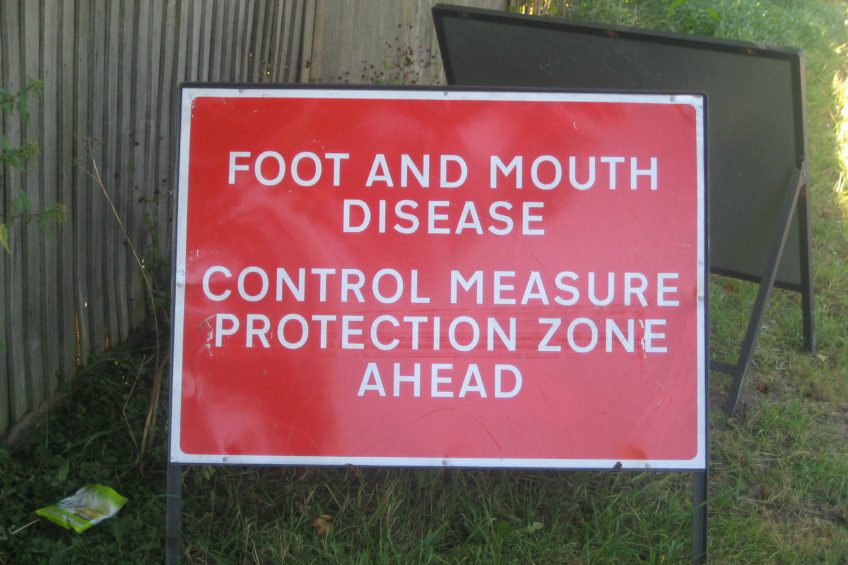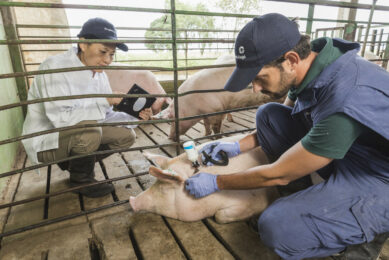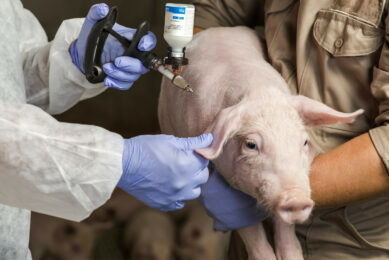How effective is vaccinating to control FMD?

Future outbreaks of Foot-and-Mouth Disease (FMD) can be controlled effectively and quickly with vaccinations – saving loads of money and many heads of pigs or other livestock, according to a study by British and American researchers.
Researchers from the University of Warwick, UK, in combination with colleagues from the USA have discovered that a key issue for successfully containing and eradicating a FMD outbreak is to establish how many animals can be vaccinated per day, and tailor controls accordingly. They recently published an article about their discovery in the scientific journal PLOS Computational Biology.
Mathematical model of UK farming landscape
Using a mathematical model of the UK farming landscape, the researchers simulated numerous scenarios of infection – to varying levels of severity and speed – calculating the most effective and efficient approaches to stave the spread of disease.

Find all there is to know about pig health using Pig Progress’ unique Pig Health Tool
Many dangerous uncertainties exist when dealing with epidemics like FMD, such as: the efficacy of vaccinations, the time it takes for livestock to become immune after receiving vaccines, and the number of vaccine doses available. Uncertainty leads to huge potential losses of both money and livestock.
The FMD model demonstrates that the major uncertainty to be resolved is how many vaccine doses are available. If this is known, the infection can be contained efficiently – even when faced with all other unknown factors.
FMD in 2001: 7 million animals culled
The 2001 FMD outbreak cost the UK economy an estimated £8 billion (€9.4 billion) and led to the culling of approximately 7 million livestock. Using the FMD model and confirming what vaccination capacity exists, the UK could save up to £50 million (€58.6 million), and around 200,000 animals could be spared from culling in any future epidemic.
Furthermore, any outbreak using such tailored vaccination can generally be eradicated almost a week sooner than previous outbreaks.
Accurately determining effectiveness of control
Dr Michael Tildesley of Warwick University’s School of Life Sciences commented: “There is always uncertainty in the likely effectiveness of any control strategy for an infectious disease outbreak. However in the case of FMD, if we can accurately determine the daily capacity to vaccinate animals, we can potentially save millions of pounds for the farming industry.”
The paper was written by Naomi V. Bradbury, William J.M. Probert, Matt J. Keeling and Michael J. Tildesley, University of Warwick, Coventry, UK; Katriona Shea and Matthew J. Ferrari, The Pennsylvania State University, University Park, PA, USA; Michael C. Runge, Patuxent Wildlife Research Center, Laurel, MD, USA; Christopher J. Fonnesbeck, Vanderbilt University, Nashville, TN, USA.











